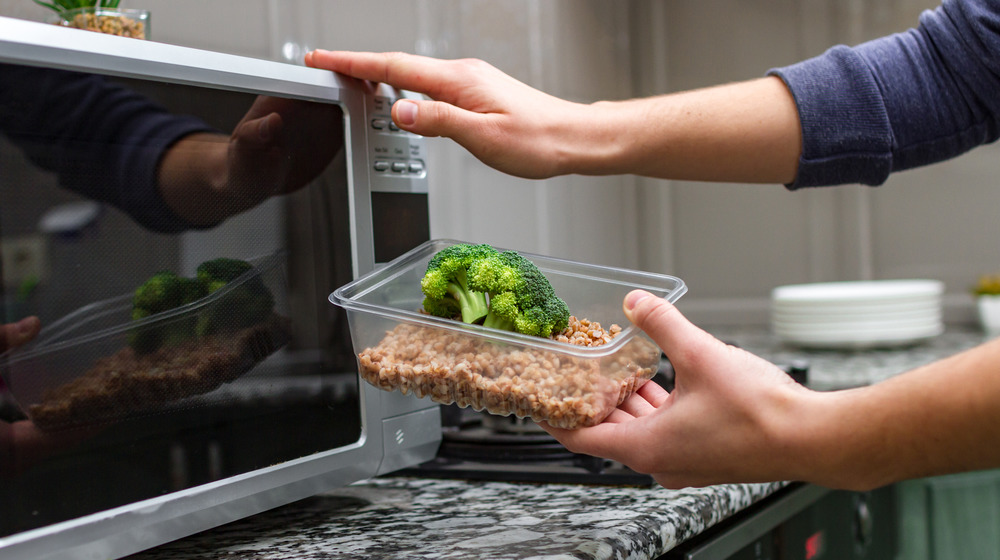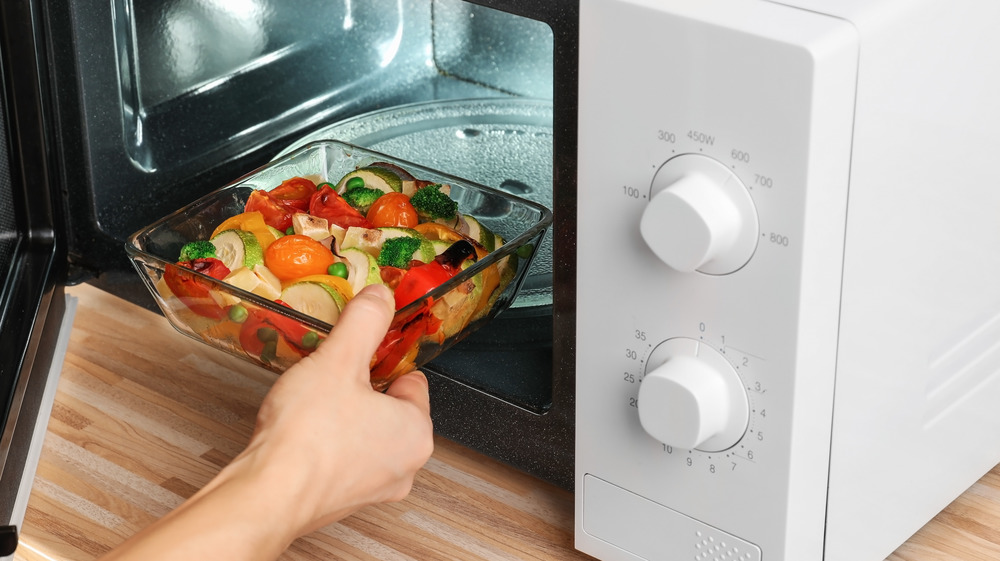Why You Should Never Microwave Your Food In Plastic
Plastic storage containers are an easy way to preserve leftovers, keep our refrigerators organized, and have a to-go lunch ready for the next day. Although convenient, the chemicals used in plastics to maintain their durability can pose long-term health risks. When plastic comes in close contact with our food, potentially harmful chemicals leak into our meals — and the risk of leakage increases when the plastic is heated. This can lead to health problems such as obesity, hormone imbalances, and fertility issues (via Harvard Health Publishing). By reducing the use of plastics in the microwave, and by being more aware of which plastics are considered harmful, we can reduce our risk of developing significant health issues later in life.
Though there are multiple chemicals used in the creation of plastic, two of the main chemicals to be aware of are bisphenol-A (BPA) and phthalates, which give plastic either its hard, or flexible, characteristics. In a study conducted by the Harvard School of Public Health, researchers found that over the course of a week, participants who consumed beverages out of hard plastics with increased levels of BPA, such as water bottles or baby bottles, had a 69 percent increase of BPA levels in their urine. Due to the risks associated with BPA, some countries, such as Canada, have restricted its use in the making of hard plastics.
Glass or chemical-free containers can reduce the harm caused by plastic
According to Russ Hauser, M.D., chair of the Department of Environmental Health and Professor of Reproductive Physiology at the Harvard School of Public Health, foods with higher fat content, such as meats or cheeses, run the risk of increased absorption of chemicals (via Harvard Health Publishing). Even the use of a plastic lid to reduce food splatter can pose a risk, as the water droplets from condensation can drip into the food in the same way that plastic wrap can potentially melt into the food. (via Sharp).
In order to reduce the health risks associated with long-term plastic use, there are some precautions you can take. For starters, consider using paper towels as a cover when heating food in the microwave, and do away with those plastic container lids. Additionally, when thawing food, utilizing a phthalate-free and BPA-free plastic, or better yet, a glass or porcelain container, will reduce the risk of chemical leaking. Be sure to throw away any plastic water bottles that have been left baking in the sun, and recycle old plastic containers that are worn from usage like those that are beginning to crack, as this also increases the chances of chemical leakage. Adopting healthier food preparation habits can help keep you and your family safe from long-term chemical exposure.

